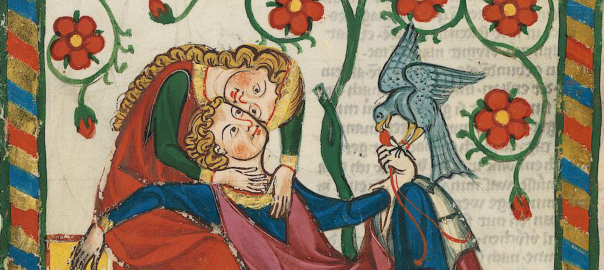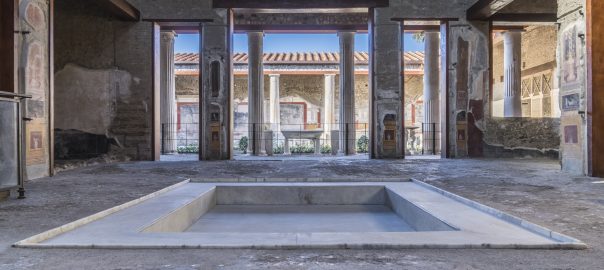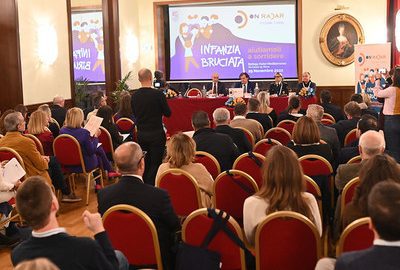Jan. 01, 2024 /Mpelembe Media/ — NotebookLM is an experimental tool by Google that helps you understand and work with information from your notes and documents. It uses AI to summarize, answer questions, and generate new insights from your content.
Tag Archives: Rome
The leap year is February 29, not December 32 due to a Roman calendar quirk – and fastidious medieval monks
Rebecca Stephenson, University College Dublin
Have you ever wondered why the extra day of the leap year falls on February 29, an odd date in the middle of the year, and not at the end of the year on December 32? There is a simple answer, and a slightly more complex one.
History’s crisis detectives: how we’re using maths and data to reveal why societies collapse – and clues about the future
Daniel Hoyer, University of Toronto
American humorist and writer Mark Twain is believed to have once said, “History doesn’t repeat itself, but it often rhymes.”
I’ve been working as a historian and complexity scientist for the better part of a decade, and I often think about this phrase as I follow different strands of the historical record and notice the same patterns over and over.
Freedom of thought is being threatened by states, big tech and even ourselves. Here’s what we can do to protect it
Simon McCarthy-Jones, Trinity College Dublin
The idea of free speech sparked into life 2,500 years ago in Ancient Greece – in part because it served a politician’s interests. The ability to speak freely was seen as essential for the new Athenian democracy, which the politician Cleisthenes both introduced and benefited from.
Voices of Preston’s Windrush generation – when I first arrived, I said: ‘Really? I thought there were no slums in this place!’
Alan Rice, University of Central Lancashire and Jack Hepworth, University of Oxford
From the earliest arrivals of what would become Preston’s “Windrush generation”, the status of the Caribbean diaspora was hotly contested in this post-industrial Lancashire town, as elsewhere. Discrimination and prejudice dogged the daily lives of people from the Caribbean who made their home here.
‘They just ignored my tears, they ignored my unhappiness’: former Irish nuns reveal accounts of brainwashing and abuse
Karen Hanrahan, University of Brighton
Any thoughts of escaping to a more natural life was regarded as being sinful. The idea of being unfaithful to your vocation was a step on the way to hell. It would be a mortal sin.
These are the words of Mary, my mother. She was just 15 when she entered a convent in Ireland in 1950 and 34 by the time she finally managed to leave. She had been expressing doubts to her superiors since her early twenties but years of “brainwashing” and the very real fear of her and her family facing eternal damnation made breaking her vows seem impossible.
The Pope Francis puffer coat was fake – here’s a history of real papal fashion
Carol Richardson, The University of Edinburgh
Before news of his hospitalisation for a respiratory infection this week, a fake image of Pope Francis wearing a Balenciaga-style white puffer jacket was posted to Reddit and Twitter. The image – created through AI programme Midjourney – had many viewers fooled into believing that the head of the Catholic church had dramatically updated his style.
As an art historian and an ecclesiastical historian, the image has fascinated me, not least in thinking about the rich history of papal fashion.
First of all, it caught my eye because it looks like shot silk (fabric made of silk woven from two or more colours producing an iridescent appearance). Intentionally or not, it’s a nice nod to the fascia, a sash worn by clerics over their cassocks.
Valentine’s Day’s connection with love was probably invented by Chaucer and other
Natalie Goodison, Durham University
As an undergraduate, on a tour of Europe, I happened to step into the church where Saint Valentine’s head was kept. The tour guide told us a (likely fictitious) story about Saint Valentine performing forbidden marriages for persecuted Christians under the Roman emperor Claudius Gothicus (possibly 269-270 AD). Valentine was then imprisoned and beheaded in Rome.
His saint’s day has since become a celebration of romance. But earlier medieval accounts of Valentine’s life contain no mention of his association with love.
Pompeii’s House of the Vettii reopens: a reminder that Roman sexuality was far more complex than simply gay or straight
João Florêncio, University of Exeter
As Pompeii’s House of the Vettii finally reopens after a long process of restoration, news outlets appear to be struggling with how to report on the Roman sex cultures so well recorded in the ruins of the city.
Lost childhood: a ‘tight-knit’ network to combat abuse and distress
Setting real changes in motion through dialogue among experts in order to tackle the unresolved issues of juvenile distress. This was the topic addressed during the first meeting of the ‘On Radar’ Think Tank of Fondazione Internazionale Menarini held in Rome on November 29th. Continue reading










